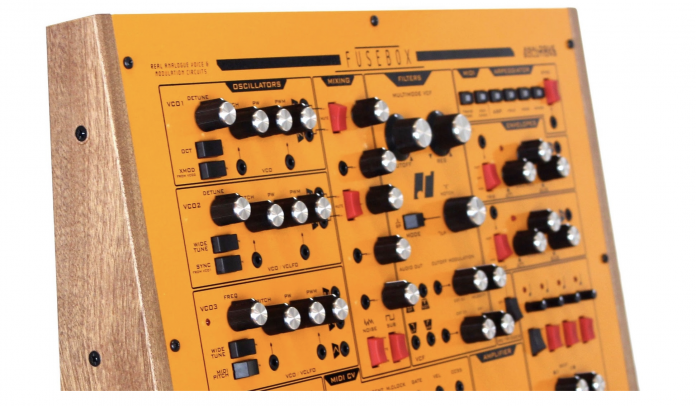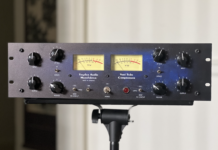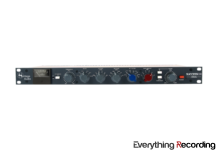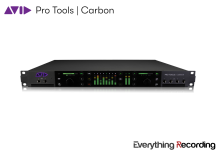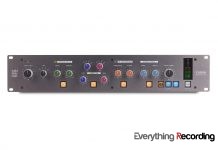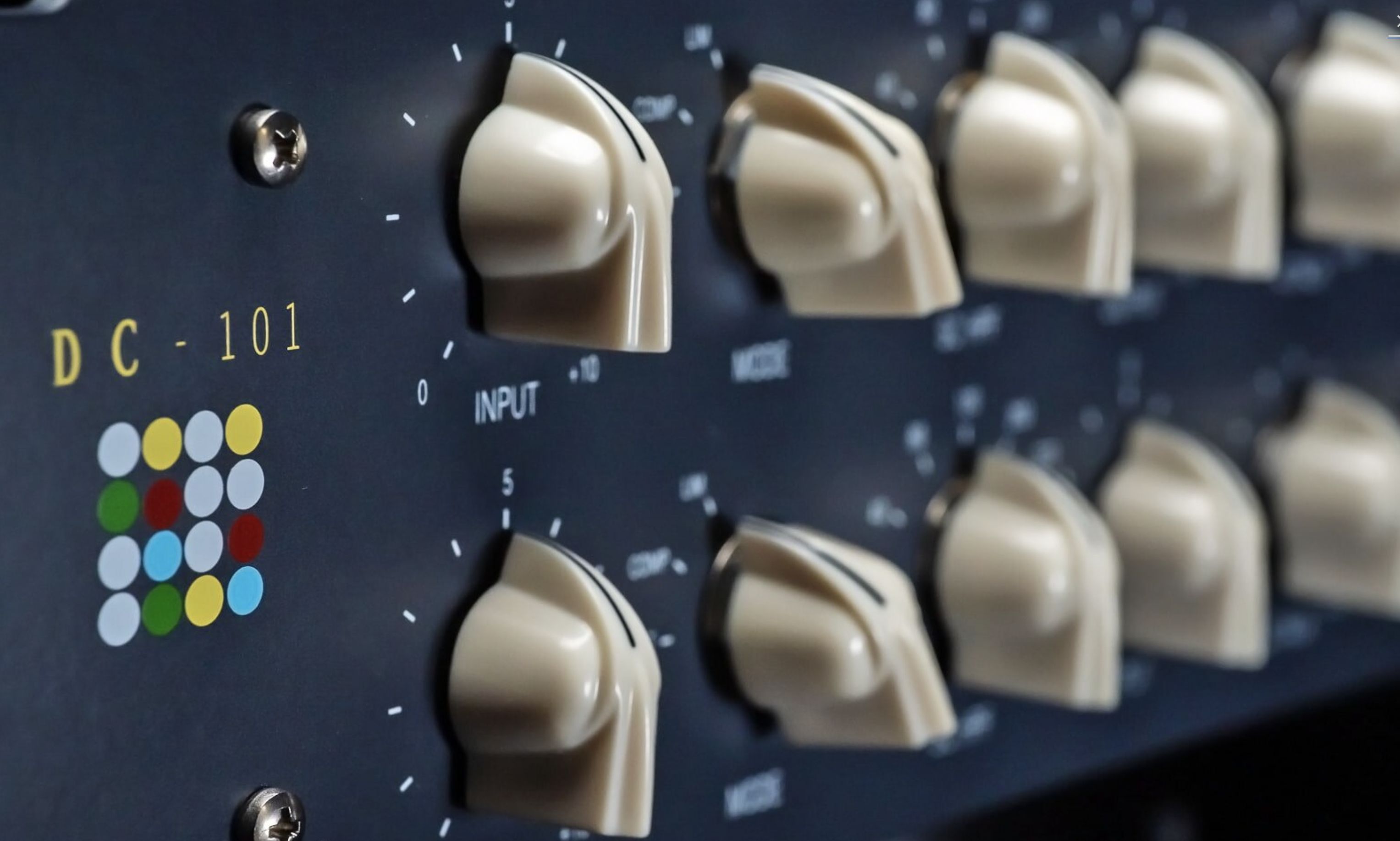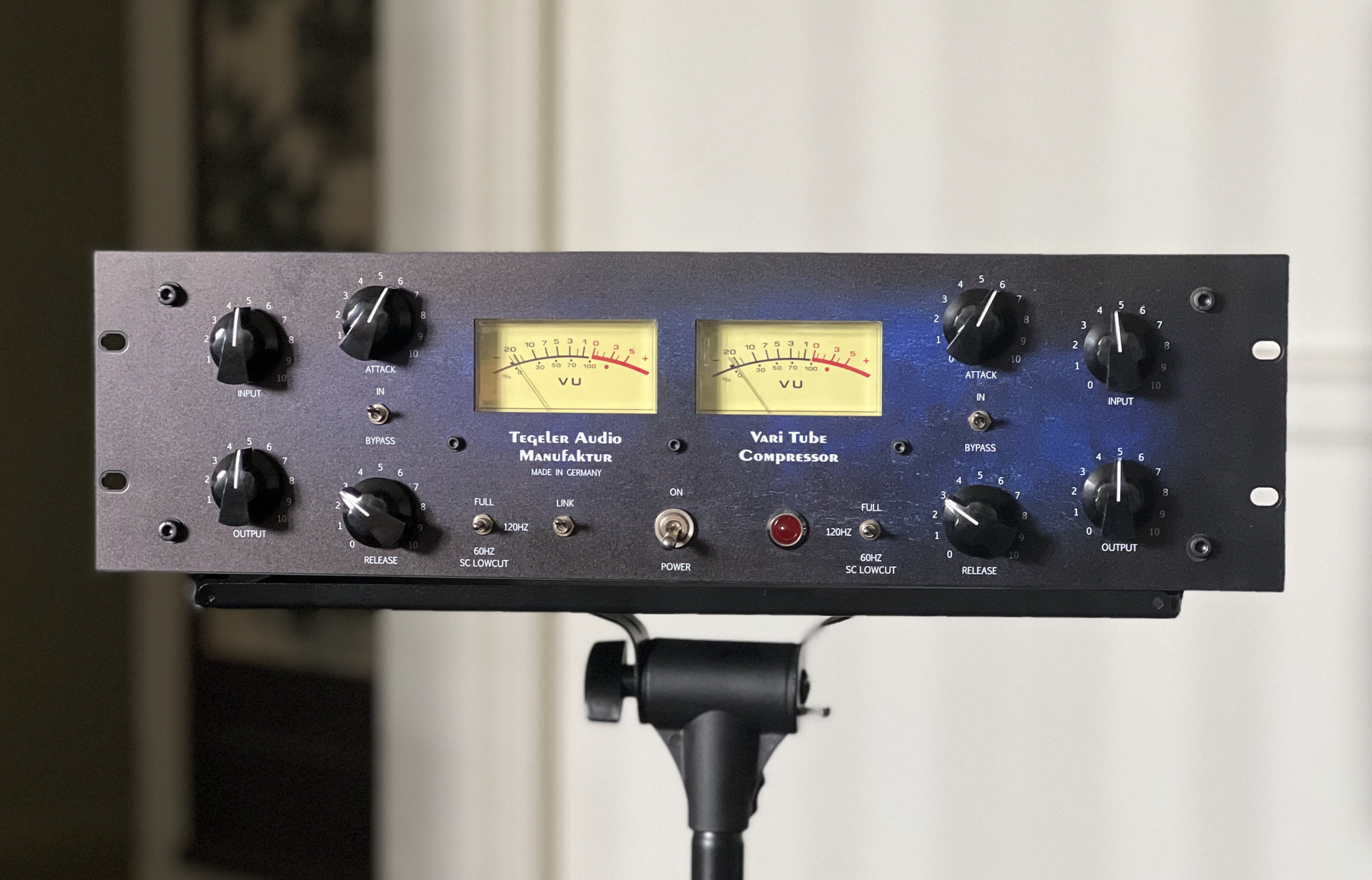Just like with studio hardware, analog has a different flavor than digital. This can be just the thing needed to stand out from the crowd. Why not preorder the Fusebox Monosynth?
KINGSWINFORD, UK: with the first batch having effectively sold out in advance, British boutique electronic instruments innovator Analogue Solutions is proud to announce that it is accepting second batch preorders for Fusebox — an aptly-named, three-VCO (Voltage-Controlled Oscillator) true analogue monophonic synthesizer that favourably fuses the company’s characterful vintage sound with an advanced choice of modulation and melodic possibilities (in a beautifully-built box)… before plugging in any MIDI (Musical Instrument Digital Interface) cables, even — as of October 6…As implied by the REAL ANALOGUE VOICE & MODULATION CIRCUITS ‘caption’ boldly blazoned across a brightly-coloured orange panel fronting a no- compromise steel/aluminium-constructed casing (with no plastic mouldings) that’s sure to stand out from (the sound) of the crowd — to partially paraphrase the early-Eighties British breakthrough hit from synth-pop pioneers The Human League (who have a soft spot for Analogue Solutions synthesizers themselves), Fusebox is a true analogue monophonic synthesizer in a smart, small package. Analogue as in really analogue. Aside from the MIDI-to-CV circuit, which, by its very nature, must include a digital element, everything else is absolutely analogue. For Fusebox trades on real transistors and op-amps — no CPU (Central Processing Unit) stabilised and quantised circuits, no DCOs (Digitally-Controlled Oscillators), and no digital EGs (Envelope Generators), as are often found on other so-called analogue synthesizers. Since the circuitry is based on designs dating back to the mid- Seventies, Fusebox proudly possesses a truly vintage sound. The kind of sound that the likes of The Human League made their own and continue to trade on to this day during an analogue renaissance that’s still showing no signs of abating anytime soon.So, as an aptly-named true analogue monophonic synthesizer, Fusebox wears its colours well. With three VCOs beating at its musical heart, here is a precision electronic musical instrument that combines must-have electronic circuitry to create a powerful synthesizer statement seriously housed in an eye-catching, compact box. But this is to be expected given its industry pedigree, perhaps. After all, Fusebox was designed by Analogue Solutions founder Tom Carpenter. As a fervent fan of electronic music and also an active electronic musician himself, he naturally knows a thing or two about programming synthesizers. So his latest and greatest creation clearly wasn’t the result of engineering design decisions alone — nor driven by a steering committee of men (or woman) in suits. So what’s inside this beautifully-built box of subtractive synthesis tricks, then?Those three VCOs, for starters — sawtooth and square waveforms available to each and all. And all have CV (Control Voltage) inputs for PITCH and PWM (Pulse Width Modulation) alongside manual PW (Pulse Width) controls. Creatively speaking, though, there are some striking variations: VCO 1 has OCT (octave) and XMOD (cross modulation) FROM VCO2 switches; VCO 2 has a WIDE TUNE (range) switch — allowing a wide tuning range (right down into low frequency territory) — alongside an oscillator SYNC FROM VCO 1 switch; VCO 3 also has a WIDE TUNE switch, together with a MIDI PITCH switch control — can be disabled to make this a free-running oscillator, ideal for modulation. Meanwhile, VCO 2 and VCO 3 can both be pressed into service as LFOs (Low Frequency Oscillators) — as implied by their respective VCO / VCLFO ‘lettering’.Leaving that OSCILLATORS section behind… well, almost, and moving, momentarily, into MIXING (with MUTE switches and additional audio inputs), here Fusebox features white NOISE and a SUB oscillator (taken from VCO 3). Thereafter, the all-important FILTERS section is centred around a 12dB MULTIMODE VCF (Voltage-Controlled Filter) featuring LP (Low Pass), HP (High Pass), BP (Band Pass), and NOTCH filters. Flexibility further abounds at the AMPLIFIER section with a VCA (Voltage-Controlled Amplifier) allowing for EG and THRU (bypass) switching; an advanced MODULATION section with a FADE IN (delay)-featured LFO; and an ENVELOPES section with two trigger option-friendly envelope generators (EG1 and EG2).Elsewhere, the INTERVAL GENERATOR is a special type of pitch transposer that allows users to set six different pitches to each of the switches, then transpose the VCOs manually to create performances — perfect when used in conjunction with the ARPEGGIATOR and/or PATTERNATOR.The ARPEGGIATOR allows an external MIDI keyboard to be used to program in the notes to be arpeggiated and will also transmit the notes to the Fusebox’s MIDI O (output). On top of that, the ARPEGGIATOR can also be used as a simple 16-step sequencer.The PATTERNATOR is a unique type of sequencer/rhythm generator. Its four CV controls can be used to create melodic loops that can be changed in realtime using the RESET and SKIP switches. The eight-step gate/trigger pattern generator can be altered using the two BEAT knobs.Needless to say, all Fusebox’s circuits have extensive minijack input and output sockets, so it can be cross-patched within itself to create an almost infinite range of sounds. Or it can be cross-patched with other synthesizers and modular systems for further flexibility. Fusebox is partially pre-patched in itself, but almost all of those patches can be cancelled using various switches and controls. Indeed, it has such a wide range of modulation routing possibilities that it is almost as versatile as a full modular system so can produce the same types of sounds — and all without patch cable clutter and confusion!Complex or as simple as the end user wants it to be, as a monophonic analogue synthesizer, Fusebox can be used for analogue sound effects, fat basses, screaming leads, bleeps, blurps, zaps, and all manner of other crazy sounds associated with subtractive synthesis. Since Fusebox features an audio input socket, it is possible to feed external sounds through the onboard analogue filters for analogue processing purposes. It even has real ‘analogue’ hardwood sides — sustainably sourced, of course! Clearly, Fusebox is analogue — as in really analogue — through and through, then.
The UK price for Fusebox is £1,140.00 GBP (excluding VAT), available from UK dealers and Analogue Solutions directly. (Dealers will start seeing stock arrive as of October 2017: http://analoguesolutions.com/
North American availability of Fusebox is being handled via Voltage & Company (http://www.vcousa.com) — full-service reps of high-quality manufacturers from around the world — with a retail price of $1,599.00 USD, while (most) EU distribution is being handled by Sonic Sales (http://www.sonic-sales.de) — one of the largest full-service MI (Musical Instrument) distribution companies in Europe — priced at €1,519.00 EUR (including VAT).
For more in-depth information, please visit the dedicated Fusebox webpage here: http://analoguesolutions.com/



